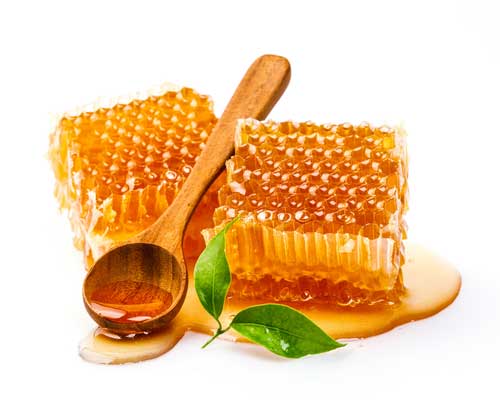There are many health benefits to drinking raw honey daily. Raw honey is an excellent source of antioxidants known as polyphenols. These antioxidants fight free radicals, which cause cellular aging and damage. Antioxidants also protect against inflammation, DNA damage, and premature cell death. Antioxidants can also protect you from certain lifestyle diseases such as heart disease and cancer. Read on to learn more about the health benefits of drinking raw honey.
Antioxidants
Research has demonstrated that honey contains higher levels of antioxidants than tomatoes and sweet corn. Deep-sea divers and astronauts consume it as part of their daily diets. Antioxidants protect the body from disease by scavenging free radicals. The presence of free radicals in our body can impair cell function and cause cellular damage. To counteract this, antioxidants in honey can help the body fight off various diseases.
Bee pollen and propolis are two substances in raw honey that help the body fight inflammation. While regular honey may not have these substances, they can still provide anti-inflammatory and antioxidant benefits. They are also effective adjuncts in treating cardiovascular, inflammatory, and gastrointestinal diseases. However, raw honey is susceptible to contamination with antibiotics, pesticides, heavy metals, and other chemicals. One case study reported an infant who contracted botulism from ingesting raw honey.
There are about 320 varieties of honey, each with its own unique composition. Although mostly sugar, honey contains a blend of vitamins, amino acids, and minerals. It also contains trace amounts of zinc and iron. Honey has antibacterial and antifungal properties, and some studies even suggest that it can prevent the onset of heart disease. It may even act as a treatment for stomach ulcers. か まぐ ら 100 通販 boosts the immune system and keeps you healthy and prevents infection.
Antibacterial
The antibacterial effects of honey are attributed to several factors. The high sugar and low moisture content of pure honey, along with its acidic pH, inhibit the growth of several bacterial pathogens. Honey contains gluconic acid and catalase, which are two of its main antioxidants. The antioxidant properties of honey are determined by several studies, including those conducted by Molan and Cooper. The antimicrobial activity of honey depends on these factors and is based on several cellular mechanisms, including gluconic acid and H2O2.
In addition, honey has broad antibacterial activity against a range of bacteria, including Pseudomonas aeruginosa, S. aureus, and E. coli. This means that it is effective against even bacteria that are resistant to antibiotics. The antibacterial benefits of honey have been well known for decades, but more recent studies have revealed that the antibacterial properties of honey may even make it more effective in treating infections than many medications.
The antibacterial activity of honey may depend on its physical property and geographic distribution. Although there is still debate over whether honey contains specific amounts of these substances, one thing is for sure: honey has many benefits! More research is needed before we can use honey as a natural treatment for many ailments. The world needs natural substances that can fight microorganisms while having minimal side effects. Ultimately, natural products with minimal side effects are better than synthetic ones.
Reduces inflammation
Research has shown that consumption of pure honey is effective in reducing inflammation. Inflammation is a common and sometimes debilitating condition characterized by pain and swelling. Honey has an anti-inflammatory effect on various tissues and is a natural immune modulator. Honey has been shown to inhibit several inflammatory responses in both humans and animals. Although the exact mechanism of how honey reduces inflammation remains unknown, it is believed to be beneficial to the human body.
The study involved a literature search to identify recent research articles on the effects of honey on cancer. In addition to the usual sources of research, we queried several online databases to find relevant articles. We used PubMed, ScienceDirect, and Web of Science to identify relevant studies. The search criteria were based on the term “honey” as well as a phrase indicating whether the article was published in English. The included articles were those that cited honey’s antibacterial, antioxidant, antidiabetic, or apoptotic activity. We included publications from 1970 through 2014. Our initial searches returned 200 articles. Of these, a review of the abstracts was conducted to ensure their relevance. In addition, we excluded 108 articles from the full text due to their non-English language.
Aside from reducing inflammation, honey may also boost the immune system. Its antioxidant and antimicrobial properties are helpful in fighting off several chronic diseases, including infections caused by bacteria, viruses, and fungi. Furthermore, honey has been shown to have a virucidal effect on enveloped viruses, including HIV, influenza, herpes simplex, and varicella-zoster. There are also promising studies on the beneficial effects of honey on COVID-19, a deadly virus caused by SARS-CoV-2. Clinical trials are underway to investigate the benefits of honey for this disease.
Promotes probiotics
Raw honey is an excellent source of prebiotics and probiotics. They promote the growth of beneficial bacteria in the digestive tract. They are prebiotics because they contain oligosaccharides, which are not digested in the small intestines but reach the large intestine where the good bacteria utilize them to maintain a healthy environment. Probiotics, on the other hand, are live bacteria that have been shown to prevent the onset of many diseases.
There are several reasons why honey can support probiotics. Firstly, it may inhibit the adherence of bacteria to host cells. Second, the astringent property of honey may influence the bacterial hydrophobicity and electrostatic charge of the host cell. Honey may also influence the activity of the antibacterial factors. This means that the consumption of honey is a beneficial way to support a healthy immune system. Moreover, honey promotes the growth of probiotics, a key factor for the well-being of the human body.
Lastly, pure honey is a rich source of prebiotic oligosaccharides, which are unable to be digested by pathogenic microorganisms. Hence, they selectively enhance the growth of probiotics and confer health benefits to the host. As a natural source of prebiotic oligosaccharides, honey is an excellent option for non-dairy synbiotic formulas.
Reduces coughing
Honey is a natural cure for a cough. It not only relieves sore throats, but it is also an effective cough suppressant. One study found that giving children with upper respiratory tract infections 2 teaspoons of honey before bedtime reduced nighttime coughing and improved sleep. Even better, the honey was as effective as cough suppressant medications such as dextromethorphan. Even better, honey is inexpensive and available everywhere.
In a recent study, researchers found that pure honey reduced cough frequency and severity in children compared to placebo. The researchers noted that honey was also marginally superior to DM in cough frequency and severity. Additionally, they found that honey improved sleep quality for both child and parent participants. Unlike other medications, honey does not interact with drugs like, カマグラ ゴールドnd in soil. If consumed in large amounts, DM can cause intestinal tract infection and breathing problems.
The natural anti-bacterial properties of honey make it an effective cough suppressant. Raw honey contains small amounts of propolis, a sticky substance made by bees from tree resin. Propolis is an antimicrobial that inhibits the growth of harmful bacteria. Honey also contains beneficial chemicals from plants that support the immune system. It’s not surprising, then, that honey has proven to be effective. There are many benefits of honey, but what’s more, it’s very cheap!
Reduces LDL cholesterol
Researchers from the University of Illinois at Urbana-Champaign discovered that a daily dose of pure honey reduced LDL cholesterol levels in healthy men and women by a significant amount. Researchers have concluded that honey contains the same type of antioxidants as fruits and vegetables, and that this means that a small daily serving can add to a heart-healthy diet. This is especially important in people who are overweight, have diabetes, or are otherwise at risk for cardiovascular disease.
Another study showed that a daily dose of honey reduced LDL cholesterol in high-risk patients. Researchers studied 157 patients with high cholesterol. They were separated into four groups: one group was given a high-fat diet, while another group received a bee-product-containing diet. A combination of bee bread, diet, and honey reduced total cholesterol by 15 percent. Overall, the study showed that honey reduced LDL cholesterol by as much as 20% in healthy subjects.
Soothes throat
Honey has been used as a sore throat remedy since ancient times. Although some people may be allergic to honey, it’s a natural remedy that is safe and effective. It has proven to be a versatile remedy, and can be used to treat many types of throat ailments, including sore throats. However, honey may not be right for everyone, so you should consult a medical professional before trying it. Honey can cause a rash, so it’s important to be cautious when using it.
Raw honey has a number of benefits, including antimicrobial, anti-inflammatory, and antibacterial properties. It may boost the immune system and provide relief from a sore throat. The throat and nose are covered by thin layers of skin called mucous membranes. Mucus expel bacteria, viruses, and other particles. Coughing, breathing, and swallowing can all be made worse by inadequate mucus production. Honey’s healing properties may be one of the reasons for its success as a sore throat remedy.




